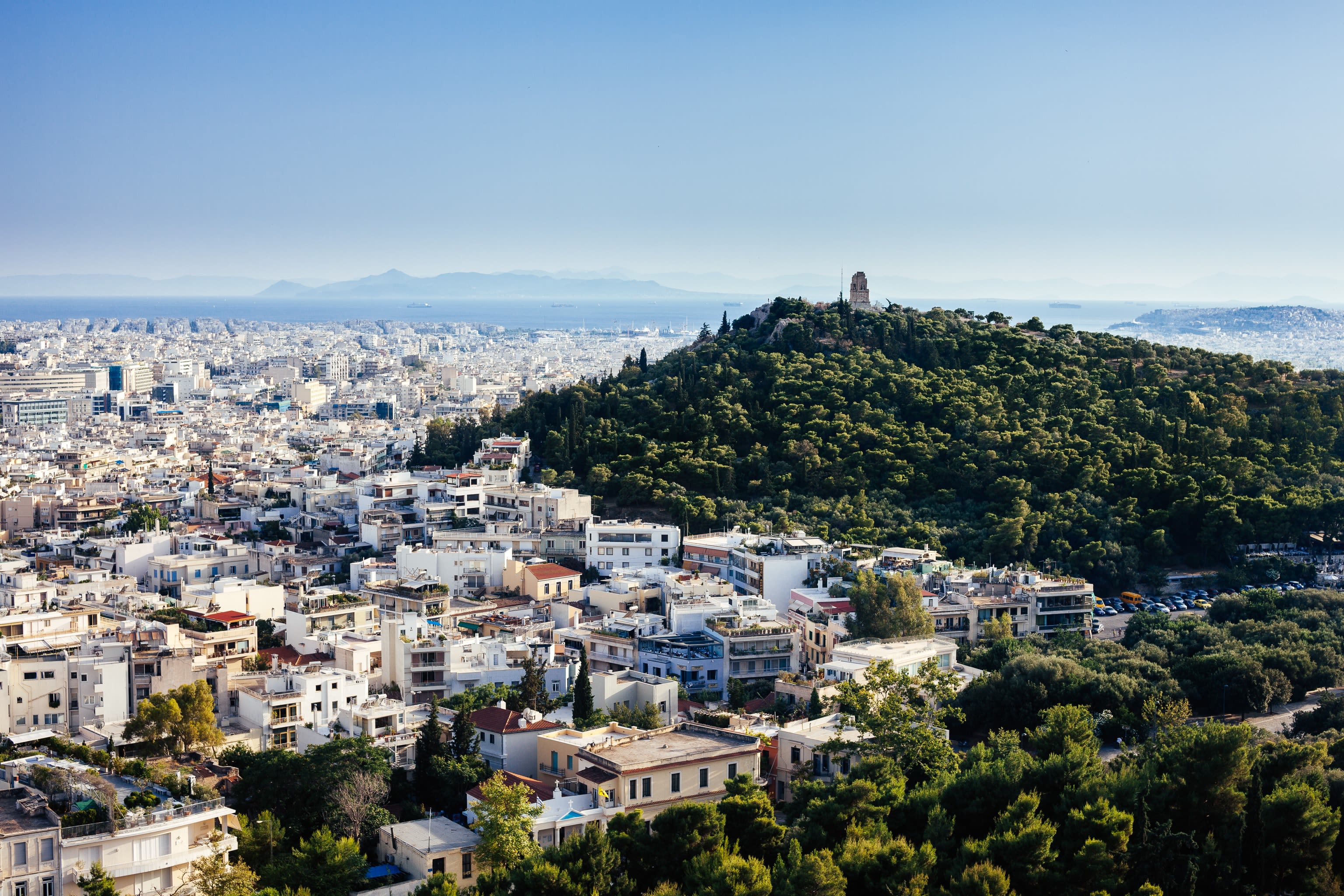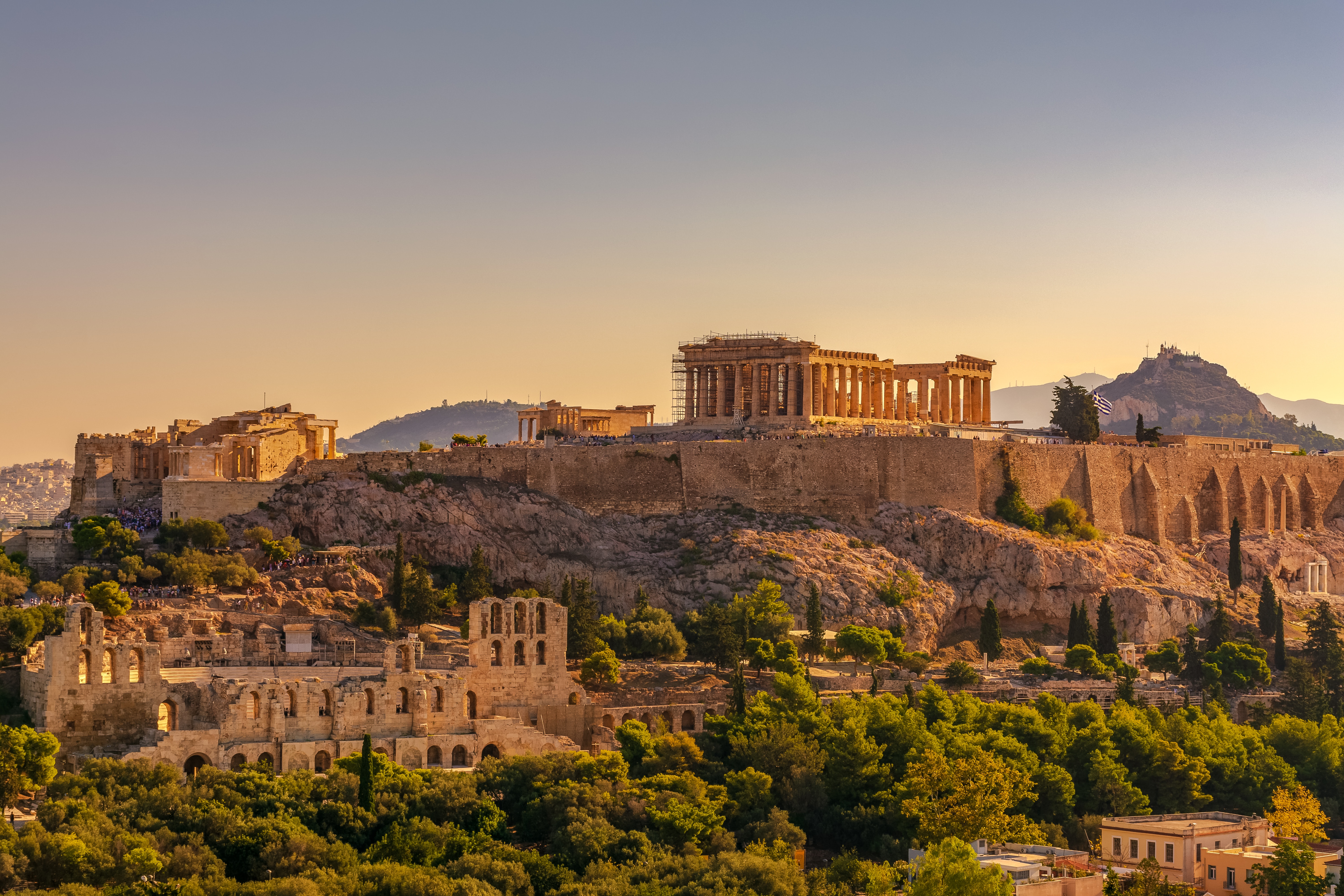Whether you’re a lover of art, great food, seaside views, ancient culture (or, let’s face it, a combination of all of the above), then Athens, Greece is almost definitely on your European travel bucket list. Athens is known around the world for its role as the birthplace of democracy and its many contributions to the Western world as we know it today. In fact, it’s such an important piece of Western civilization’s history that Athens is sometimes called the “cradle of civilization.”
If you’re thinking about taking a trip to Athens, you might be wondering: Is tap water in Athens safe to drink? Let’s talk about the water supply in Athens as well as other surrounding areas in beautiful Greece.
Key Takeaways: Can you drink the water in Athens?
- The tap water in Athens is perfectly safe to drink since it aligns with standards dictated by the European Union.
- Outside of the main areas of Athens and Thessaloniki, the water quality and taste are a little more questionable, especially in areas that rely on desalination plants for their water supply rather than freshwater sources.
- While visiting Athens and other areas of Greece, bring along a filtering water bottle or use a filtering water pitcher to ensure that your water is free of common contaminants like lead, microplastics, and PFAS/PFOA.

What you should know about tap water in Athens
The water in Athens comes from a mix of both groundwater and surface water sources. The city draws its surface water from reservoirs and lakes like Lake Marathon, Mornos, Yliki, and Evinos, and supplements its water supply with underground water wells as needed.
The water supply system in Athens is managed by the Athens Water and Sewage Company (EYDAP), which ensures that water is safe for human consumption before it is distributed to the taps throughout the city. As a result, all of the distributed tap water in Athens is subject to testing and water treatment processes to ensure that it meets the quality standards set by the European Union.
The drinking water in Athens is therefore technically and legally safe to drink, and it has even won awards for being some of the best drinking water in Europe in the last couple of years. But even though the water system in Athens is very well-managed, there are still some potential quality issues depending on where you are in the city. What’s more, the water quality issues become worse as you move further away from busy urban areas like Athens and Thessaloniki and enter rural areas and the surrounding Greek islands.
Water scarcity
One of the biggest issues that plague the tap water in Athens isn’t actually its safety: it’s the availability of the water supply itself.
Maintaining an adequate supply of water for both locals and tourists has been a huge problem throughout the entirety of Greece, and climate change is making the situation even more dire. In islands like Santorini, for example, the local government relies on desalination plants that convert ocean water into drinkable (albeit brackish) drinking water. But it’s also an issue on the mainland, especially with the steady rise in population that the Mediterranean country has seen recently. For example, it’s estimated that the Greater Athens region is expanding by about 6% every year, and some experts are concerned that the current water supply won’t be enough to sustain the population if it continues at this rate.
Lead contamination
In addition to the general scarcity of water, it’s also important to note the existence of lead pipes in the water system, especially in a city as old and historic as Athens.
The European Union has very strict limits on lead in drinking water, especially when compared to many other large governments. For example, the EU limits its drinking water to a maximum of 10 μg/l, while the United States’ actionable limit is as high as 15 μg/l. As a result, the Athens Water and Sewage Company closely monitors its drinking water to ensure that any present lead doesn’t exceed those limits.
But even still, an old city and old infrastructure means that lead pipes still exist in some areas of the city. In buildings with old and outdated plumbing systems, the water passing through the pipes can cause old lead building materials to leach into the water supply, leading to higher levels of lead once it comes out of your faucet. Like many cities around the world, EYDAP is working to replace those older pipes, but the process is not done yet.
Other considerations for tap water in Greece
It’s also important to note that, while the bigger cities in Greece like Athens have water that is strictly tested and is generally safe and good to drink, the same is not necessarily true for some areas outside of the city.
If you’re planning on visiting other popular spots in Greece like the islands of Santorini or Greece, you may find that drinking tap water is not always recommended. There are no freshwater sources on these islands; instead, they rely on desalination plants that convert ocean water into water that can be drunk by humans. This water generally does align with EU standards, just like other drinking water sources in Greece, but it is also known to taste fairly brackish. So in places like this, while the water is technically safe and can be used to brush your teeth or take a shower, the taste and quality leave a little more to be desired.
The bottom line: the tap water is safe in Athens, but it’s still a good idea to use a water filter first.
In Athens and many other parts of Greece, the water is safe to drink. However, because of various concerns regarding supply and infrastructure, it’s popular on both the islands and the mainland to buy bottled water rather than drinking straight from the tap.
Luckily, there’s a more sustainable and cost-effective way to safely drink water in Athens: simply use a water filter! Investing in a portable filtering solution like the LARQ Bottle Filtered or a countertop filter like the LARQ Pitcher PureVis allows you to taste the delicious Greek tap water while also filtering out common contaminants like lead, PFAS/PFOA, microplastics, and other heavy metals.
